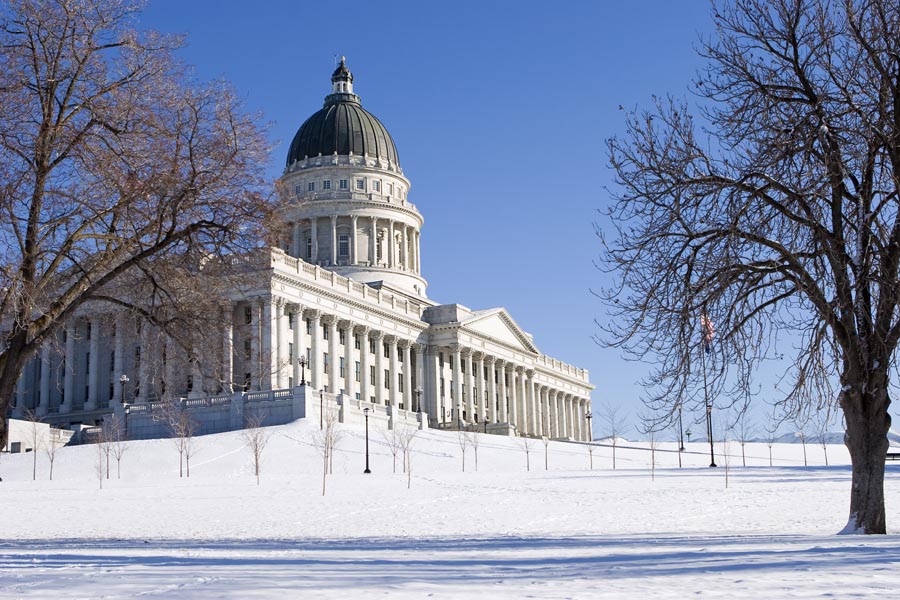| “No one else was in the room where it happened/No one really knows how the game is played/The art of the trade/How the sausage gets made” -Lyrics from the Broadway musical Hamilton I don’t know whether Utah Senate President Wayne Niederhauser or his colleagues are fans of Lin-Manuel Miranda’s musical hit Hamilton, or of its subplot involving Aaron Burr being left out of important closed-door discussions. |
| | But they are, at least, open to letting the media into a sort of anteroom to the room where everything happens at the Utah Legislature. That’s something, at least. It’s certainly something a lot more than House leaders were willing to offer during the 2017 session, and it’s a lot more than the public or media got when it came to Republican caucus meetings, where the heavy lifting really happened. Even though the lifting involved the public’s business, the public generally wasn’t welcomed — except at noon in the Senate. Every day, after the morning floor session, Niederhauser and other Senate leaders would meet with reporters in the president’s office. At least one representative of the Democratic Party was invited to join to express the minority viewpoint. The briefing was broadcast live over the Internet and available on-demand afterward. If reality TV and the daily White House soap opera have you bored, you can find all these today on the Senate’s YouTube channel. Questions and answers were unscripted and frank. If a reporter wanted a particular senator to be a part of the discussion, staff would retrieve him or her. People watching via the Internet could chime in with questions of their own. If you wanted to hear what House Speaker Greg Hughes had to say, you needed an appointment that would fit with his busy schedule. And if you wanted to know what happened in the room where it really happened, you had to sit outside with the Aaron Burrs of the world and hope someone would tell you when it all was done. Open government isn’t an issue only in Utah, nor was the 2017 session any different than other sessions in the recent past. It’s also hard to argue that the final results, a balanced budget and bills that generally haven’t hurt Utah’s booming economy, aren’t desirable. But the practice of haggling and negotiating in private leads to some interesting perceptions among the public. One person asked me why lawmakers always seem to save the really important decisions until the last minute. The answer is they don’t. It only seems that way because the negotiating is done secretly. The National Conference of State Legislatures has published a table that tracks how caucuses in each state handle the public. Utah is part of a solid majority. It is significant, however, that House and Senate caucuses are listed as “always open to the press” in Arizona, Colorado, Kentucky, Montana and North Dakota. Somehow, lawmaking still gets done in those states. Utah’s House Republican caucus often opens itself to the press and public, but these folks are politely asked to leave the minute something really hard, like tax reform, comes up for discussion. Democratic caucuses were open, but that party doesn’t have the numbers to matter much. Maybe Utah’s short 45-day legislative session is an impediment. If negotiations were more open, lawmakers might need 120 calendar days, as in Colorado, to sort everything out. But Kentucky manages to get things done in only 30 days on odd years, 60 on evens, with open caucuses. Whenever I brought this up during the session, politicians and others tended to turn to the Founding Fathers, and not in a Lin-Manuel Miranda sort of way. Those early leaders met in secret to draft the Constitution, they would note. That is true, but lawmakers are not drafting new constitutions each year. They are drafting laws that are supposed to represent the needs of the people within the framework of the constitution. As the National Conference of State Legislatures’ document notes, many political leaders like caucus meetings to be freewheeling discussions where lawmakers can speak "without others in the room." Yet it’s interesting to note that, according to laws previous Legislatures have passed, your local city council can’t haggle over things like budget issues in private. At the least, House leaders should make themselves as available as their Senate colleagues. An anteroom, after all, is better than being out in the cold. |


 RSS Feed
RSS Feed

